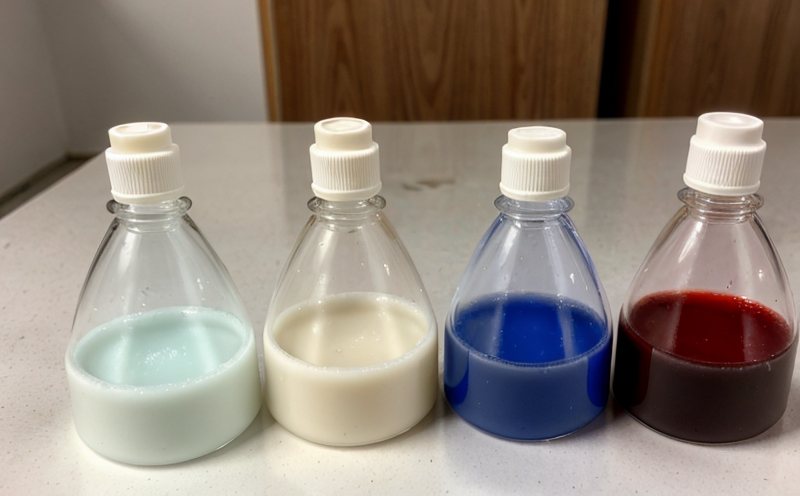ISO 18263 Recycled Plastic Monomer Testing
The ISO 18263 standard provides a comprehensive approach to assessing the monomers present in recycled plastics. This service is crucial for ensuring that recycled plastic products meet stringent quality and regulatory standards, which are vital for both environmental sustainability and consumer safety.
Monomers in recycled plastics can influence various properties such as durability, flexibility, and chemical resistance. Identifying and quantifying these monomers allows manufacturers to optimize the recycling process and ensure product compliance with international regulations like ISO 18263 and ASTM D7944. This service is particularly important for sectors dealing with packaging, automotive parts, electronics, and consumer goods.
The testing procedure involves several steps, including sample preparation, extraction of monomers from the recycled plastic matrix, and identification using spectroscopic techniques such as Fourier Transform Infrared Spectroscopy (FTIR) or Gas Chromatography-Mass Spectrometry (GC-MS). The choice of instrumentation depends on the complexity of the polymer blends present in the recycled material.
Acceptance criteria for this service are stringent, ensuring that only products meeting these standards can be certified. Compliance with ISO 18263 guarantees that recycled plastic materials do not contain harmful monomers, which could lead to degradation or adverse health effects if used in consumer goods.
Our laboratory uses state-of-the-art equipment and follows internationally recognized protocols to ensure accurate results. This service is essential for companies committed to sustainable practices and regulatory compliance. By partnering with our experts, organizations can enhance their reputation and meet the growing demand for eco-friendly products.
Industry Applications
The ISO 18263 Recycled Plastic Monomer Testing service finds applications across multiple industries where recycled plastics are used. In packaging, this testing ensures that materials are free from harmful monomers that could leach into food or beverages during storage and transport.
The automotive industry benefits significantly by using recycled plastics in various components such as interior trim, bumpers, and structural parts. Ensuring the absence of problematic monomers helps maintain the integrity and longevity of these components.
Electronics manufacturers also leverage this service to incorporate recycled plastics into their products without compromising on quality or safety. By adhering to ISO 18263 standards, they can offer environmentally friendly solutions that meet stringent regulatory requirements.
The consumer goods sector relies heavily on recycled plastics for creating sustainable packaging and product components. This testing ensures that the final products are safe, durable, and eco-friendly, meeting both internal quality control standards and external regulatory demands.
Quality and Reliability Assurance
- Sample Preparation: Rigorous sample preparation is critical to ensure accurate monomer identification. Samples are cleaned, dried, and ground to a uniform particle size before extraction.
- Extraction Methods: Depending on the polymer type, different extraction methods may be employed. Common techniques include solvent dissolution, acid hydrolysis, or ultrasonic-assisted extraction.
- Spectroscopic Analysis: Once extracted, monomers are analyzed using FTIR and GC-MS to identify and quantify them accurately.
- Data Interpretation: Expertise in interpreting spectroscopic data is essential to correlate peaks with specific monomer species. This step ensures that all identified monomers comply with acceptance criteria.
The reliability of this testing process lies in the precision of the analytical techniques used and the consistency of sample preparation. Our laboratory maintains strict quality control measures to ensure repeatability and accuracy across all tests.
Use Cases and Application Examples
Packaging Industry: A major case study involves a leading beverage company that sought to enhance the sustainability of its packaging. By implementing ISO 18263 testing, they identified problematic monomers in their recycled plastic bottles. This led to process improvements that significantly reduced these compounds, resulting in safer and more eco-friendly packaging.
Automotive Sector: An example from the automotive industry highlights a car manufacturer working on reducing its carbon footprint. By using this testing service, they were able to identify monomers in recycled parts used in vehicle interiors. These findings facilitated the development of new recycling protocols that improved material quality and safety.
Electronics Industry: In the electronics sector, a notable application involved a global tech company aiming to integrate more recycled plastics into its product range. Through ISO 18263 testing, they discovered certain monomers that could affect the functionality of their products. This insight allowed them to refine their recycling processes and enhance product reliability.
Consumer Goods: A final example from the consumer goods sector involves a household appliances manufacturer. By ensuring compliance with ISO 18263 standards, they were able to launch eco-friendly appliances that met both regulatory and internal quality benchmarks.





